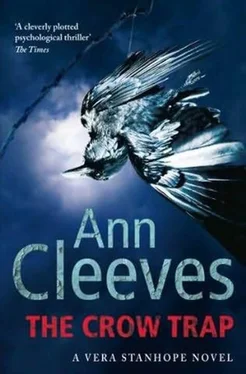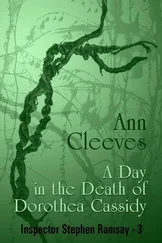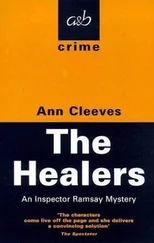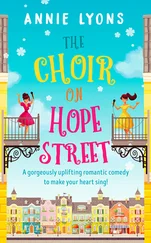It never occurred to Grace to ask her social worker about the photograph or about her father, to ask even if he was still alive. She knew that she wouldn’t get a straight answer. Miss. Thorne had always seemed frightened by information. She was prepared to talk about feelings, to go on about them at length, but facts disturbed her.
Perhaps that was why Grace enjoyed them so much.
She came to the conclusion that the man in the photograph was related to Nan because the garden beside the brick semidetached house in the picture was such a tip. The weeds were waist high and piles of rubbish in black plastic bags were piled in front of the garden wall. It was the black plastic which first linked Nan with her father in Grace’s mind. That, and the way the man was standing, glaring out at the camera.
Nan glared at everyone, even if she wasn’t particularly cross.
One day they were sitting in the sun on the caravan steps waiting for the social worker to come in the car to take her home. Grace had had a good day. She’d seen a kingfisher for the first time, and she’d tracked down its nest to a hole in the river bank. There were bluebells in the woods. She was older, in her last year at primary school. Suddenly she asked, “Where’s my dad?”
She hadn’t planned the question, but she was feeling comfortable sitting there in the sunshine, relaxed after the walk, so when it came into her head she spoke it, without her usual calculation. But then she realized its significance. She watched Nan carefully. Usually Nan muttered because she had no teeth, but with some effort Grace had learnt to make sense of what she said. Today, however, Nan didn’t attempt to speak.
“You do know, don’t you?” It wasn’t like Grace to be so persistent.
She waited. A tear rolled from Nan’s eye down the groove which separated her cheek from her nose and onto a stubbly upper lip, but Grace refused to be put off.
“Well?” she demanded.
Then they heard the social worker’s car jolting up the track. The sun was so low that it shone straight into Grace’s eyes and she couldn’t see the car, except as a blurred shape, until it stopped outside the caravan. Nan wiped her eye with the hem of her apron.
On their way home the social worker asked, “What was wrong with Nan?”
“I don’t know,” Grace said truthfully.
At the time the social worker seemed to accept the reply but Grace was never taken to visit the old lady again. No explanation was given.
The following September Grace moved from primary school to the high school. This was a large establishment with more than a thousand pupils. There were three square buildings like factories, with rows of windows separated by sheets of blue and yellow plastic. In places the plastic was split, many of the windows could not be shut. Grace’s first impression of the school was of a constant battle with the buildings: the heating failed, the roof leaked, cracks had been found in the gymnasium floor so there was nope
The lack of PE didn’t bother Grace. There had been plenty of that in primary school and she was looking forward to learning new subjects.
She’d been visiting the public library secretly to get an idea of what would be expected. She was especially excited by the idea of biology, physics and chemistry. When her form tutor, a harassed middle-aged man, handed her a printed timetable on the first day she ringed these subjects in red. She was in the top set in all lessons. For the last two years of junior school she had been marking time, taking care not to show off.
By that time she was living with Frank and Maureen. Before moving in with them she had a short period in an assessment centre, which for some reason was almost empty. In the centre she was subject to interviews and questions. Here, perhaps, she could have brought up the topic of her father, but she never did. She felt she wanted to discover him for herself.
With Frank and Maureen she was happier than she’d been with any of the other foster parents. Frank had been a self-employed lorry driver until back trouble had forced him to give it up. Maureen still worked as a cook in a hospital. They saw fostering as a job, a business, and this took the pressure off Grace. She didn’t have to pretend to love them. They mostly took teenagers, the sort of kid no one else wanted.
Now there were four, and Grace was the youngest. They lived in a four-bed roomed 1930s semi on the edge of a once respectable, but now rather neglected council estate. Grace was the only girl so she had the smallest bedroom to herself. The boys were rowdy and troublesome, all had been known to the police. Grace didn’t care. She took no notice of them and shut herself in her room with her books.
The other reason for Grace’s contentment at this time was a dog called Charlie. Frank and Maureen were the first of her foster parents to own a pet. Charlie was a frenetic mongrel, with wild eyes, a stray. Frank took him in with the same tolerant good nature which prompted him to open his door to delinquent boys, but amid the chaos of the house he was often neglected. Since her arrival Grace took responsibility for Charlie, who repaid her with lavish and exuberant devotion.
The first day she saw her father it was sunny. She had Biology last period and they studied the structure of the flower. She drew a diagram, neatly coloured, of petals, stamen and stigma. The biology lab was at the top of the building, a real sun trap The others had taken off their jumpers and cardigans but Grace kept hers on. Maureen was too busy with her work in the hospital and a particularly disruptive glue sniffer to iron shirts. So Grace felt pink and a little sweaty as she humped her large bag out of school and towards the bus stop.
The man was standing on the other side of the road to the school entrance. He was dressed, inconspicuously, in jeans and a plain heavy sweatshirt. He pretended to read a newspaper and that was what made Grace notice him first. He was reading the Guardian. Carol and Jim, two sets of foster parents ago, read the Guardian. Jim taught Art and Carol was a librarian. But Frank and Maureen, and the other adults into whose homes she was occasionally invited, read the Mirror or the Sun or occasionally the Express. So as she waited for her bus she watched him with interest. She watched which child he was looking out for. It occurred to her that if the father read the Guardian the child might feel odd and isolated too. They might be friends.
But the man didn’t seem to know exactly who he was waiting for. He looked over the edge of his newspaper with increasing desperation at the stream of children who flowed past. Occasionally he seemed about to ask one of them for guidance but at the last minute he lost his nerve. When her bus arrived he was still standing there. She climbed onto the bus and showed her pass, letting a crowd of pupils push past her to go upstairs. She found a seat by a window. The bus started noisily and drove straight past the man. Perhaps the diesel engine disturbed his concentration because he stared angrily after it. Then she realized that he was waiting for her. This man was older but he was the same one as had glared out at her from the photograph in the scrapbook for as long as she could remember.
She stared back, and banged on the window, hoping that he would notice her and that would provide a spark of recognition, but he had already given up. He turned away and she watched him walk down the street.
That’s it, she thought. I’ll never see him again. She leapt to her feet and rang the bell in an attempt to stop the bus but the driver was so accustomed to naughty children playing tricks that he just turned round and swore at her.
“Please!” she cried. It was like a nightmare, watching her father disappear into the distance. But still the driver wouldn’t stop.
Читать дальше












